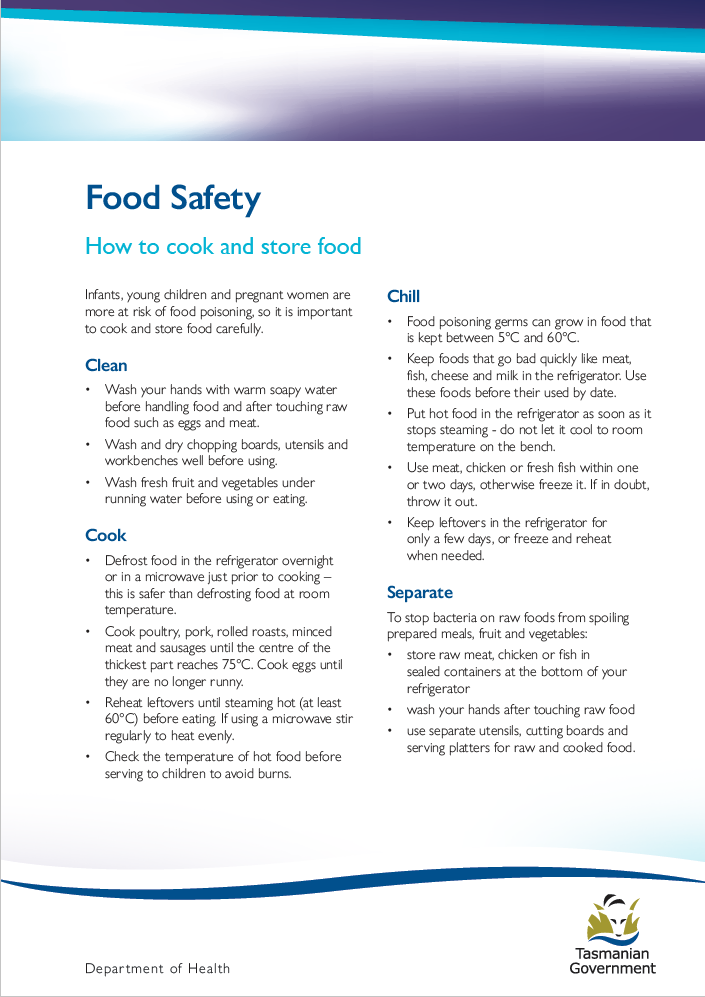Food safety fact sheet
Tucker Talk resources

On this page
Downloads
Description:
Infants, young children and pregnant women are more at risk of food poisoning, so it is important to cook and store food carefully.
Clean
- Wash your hands with warm soapy water before handling food and after touching raw food such as eggs and meat.
- Wash and dry chopping boards, utensils and workbenches well before using.
- Wash fresh fruit and vegetables under running water before using or eating.
Cook
- Defrost food in the refrigerator overnight or in a microwave just prior to cooking – this is safer than defrosting food at room temperature.
- Cook poultry, pork, rolled roasts, minced meat and sausages until the centre of the thickest part reaches 75°C. Cook eggs until they are no longer runny.
- Reheat leftovers until steaming hot (at least 60°C) before eating. If using a microwave stir regularly to heat evenly.
- Check the temperature of hot food before serving to children to avoid burns.
Chill
- Food poisoning germs can grow in food that is kept between 5°C and 60°C.
- Keep foods that go bad quickly like meat, fish, cheese and milk in the refrigerator. Use these foods before their used by date.
- Put hot food in the refrigerator as soon as it stops steaming - do not let it cool to room temperature on the bench.
- Use meat, chicken or fresh fish within one or two days, otherwise freeze it. If in doubt, throw it out.
- Keep leftovers in the refrigerator for only a few days, or freeze and reheat when needed.
Separate
- To stop bacteria on raw foods from spoiling prepared meals, fruit and vegetables:
- store raw meat, chicken or fish in sealed containers at the bottom of your refrigerator
- wash your hands after touching raw food
- use separate utensils, cutting boards and serving platters for raw and cooked food.
Tips for buying safe foods
- Check the ‘best before’ and ‘use by dates’ before you buy food. Products should not be eaten or sold past their ‘use by’ date. You can eat foods after their ‘best before’ date but they may not taste as fresh
- Do not buy food in damaged containers – especially canned foods. Do not store food in opened cans. Put the food in a sealable non-metal container after opening.
- Do not buy cracked or dirty eggs.
- Buy cold or hot foods last and get them home fast. It can help to have an esky or insulated bag in your car to carry them.
Tips for safe lunchboxes
- Put in a frozen ice brick and use an insulated lunchbox.
- On hot days, avoid high-risk foods such as cold meat and chicken, eggs and rice.
- Throw out any uneaten foods like sandwiches and yoghurts.
Want to know more
More information about food safety is available from the Food Safety Information Council
Ask your GP or child health nurse.
Document accessibility
We aim to provide documents in an accessible format. If you are having problems using a document with your accessibility tools, please contact us for help.
Publication date:
Publication type:
Fact sheets
Last updated
